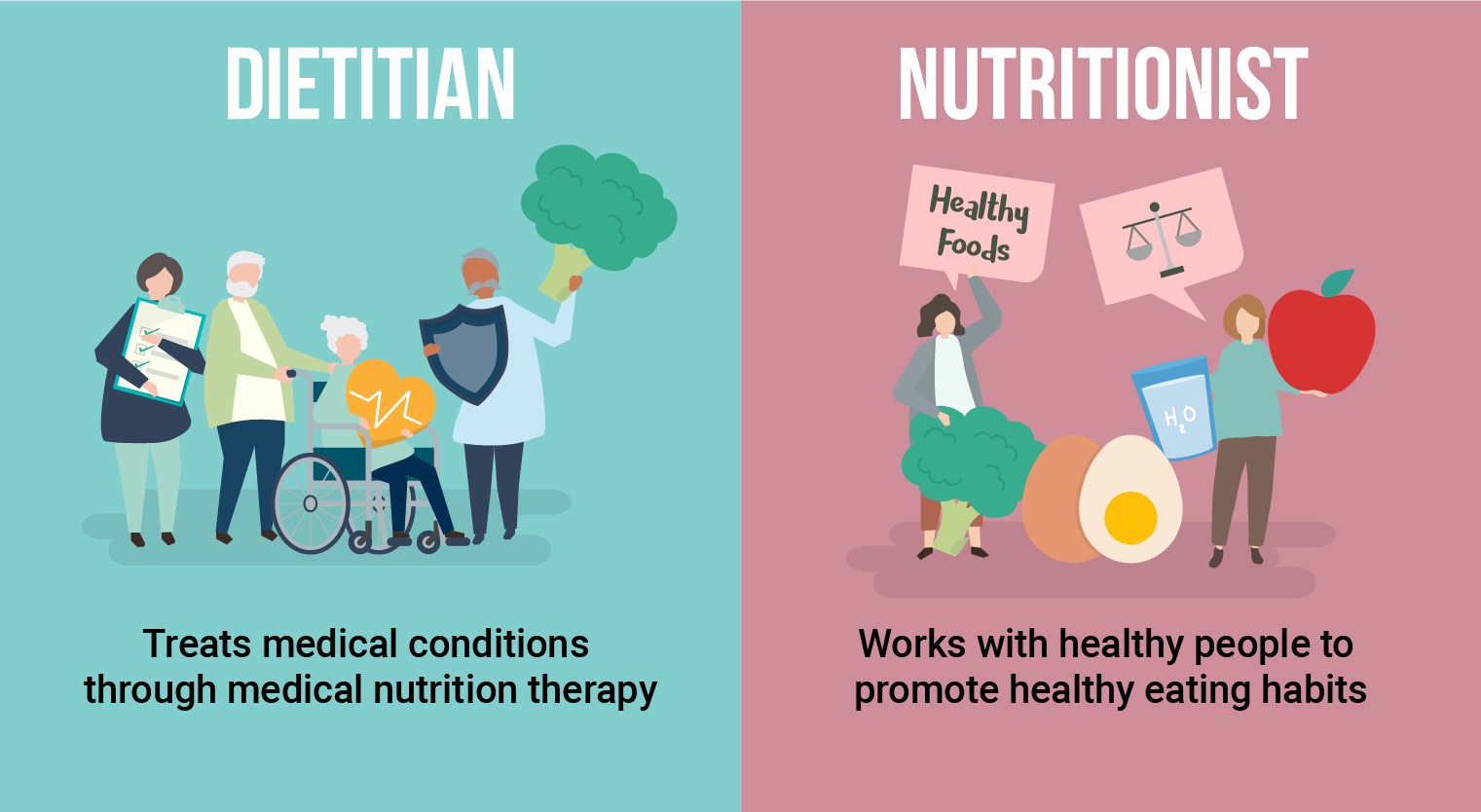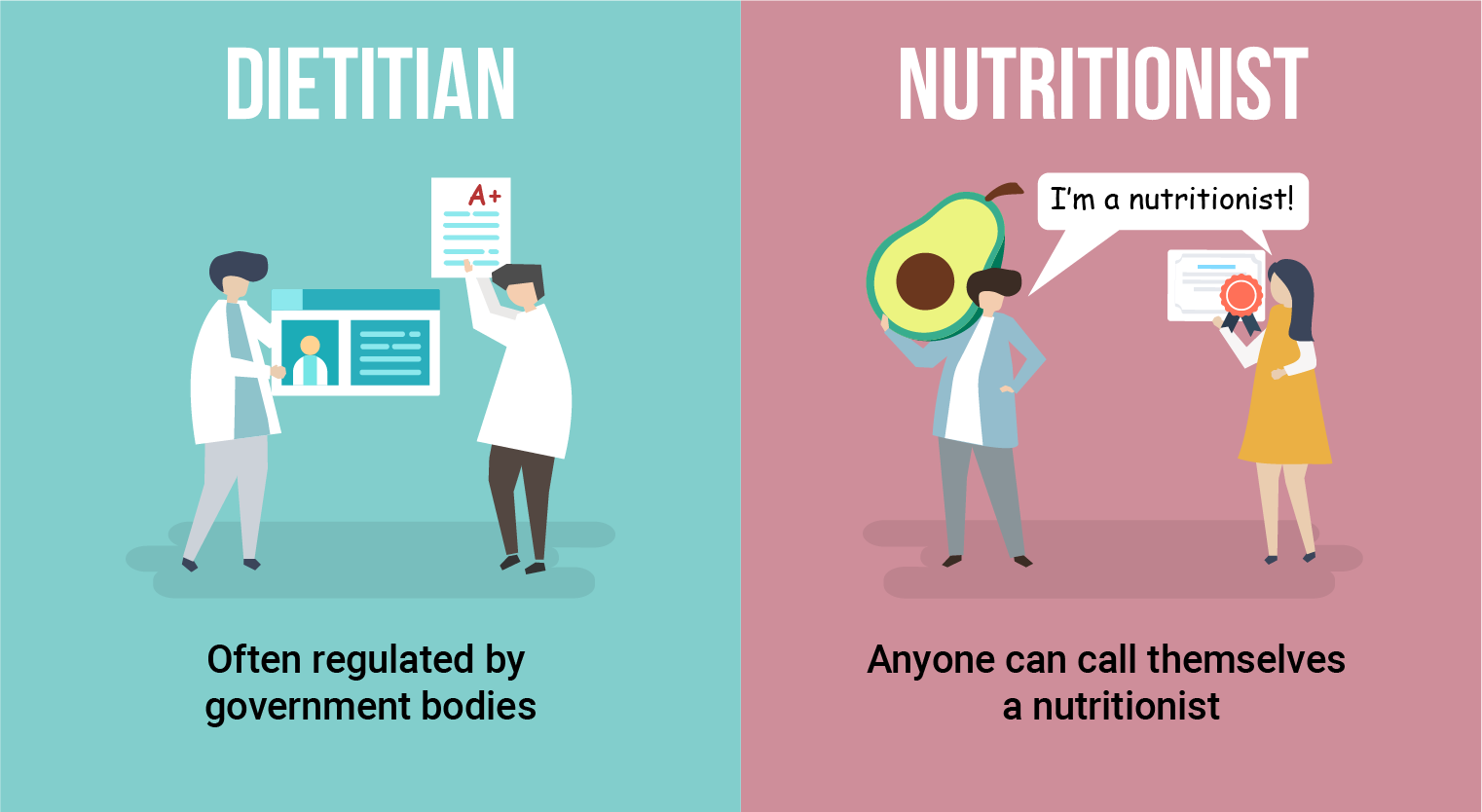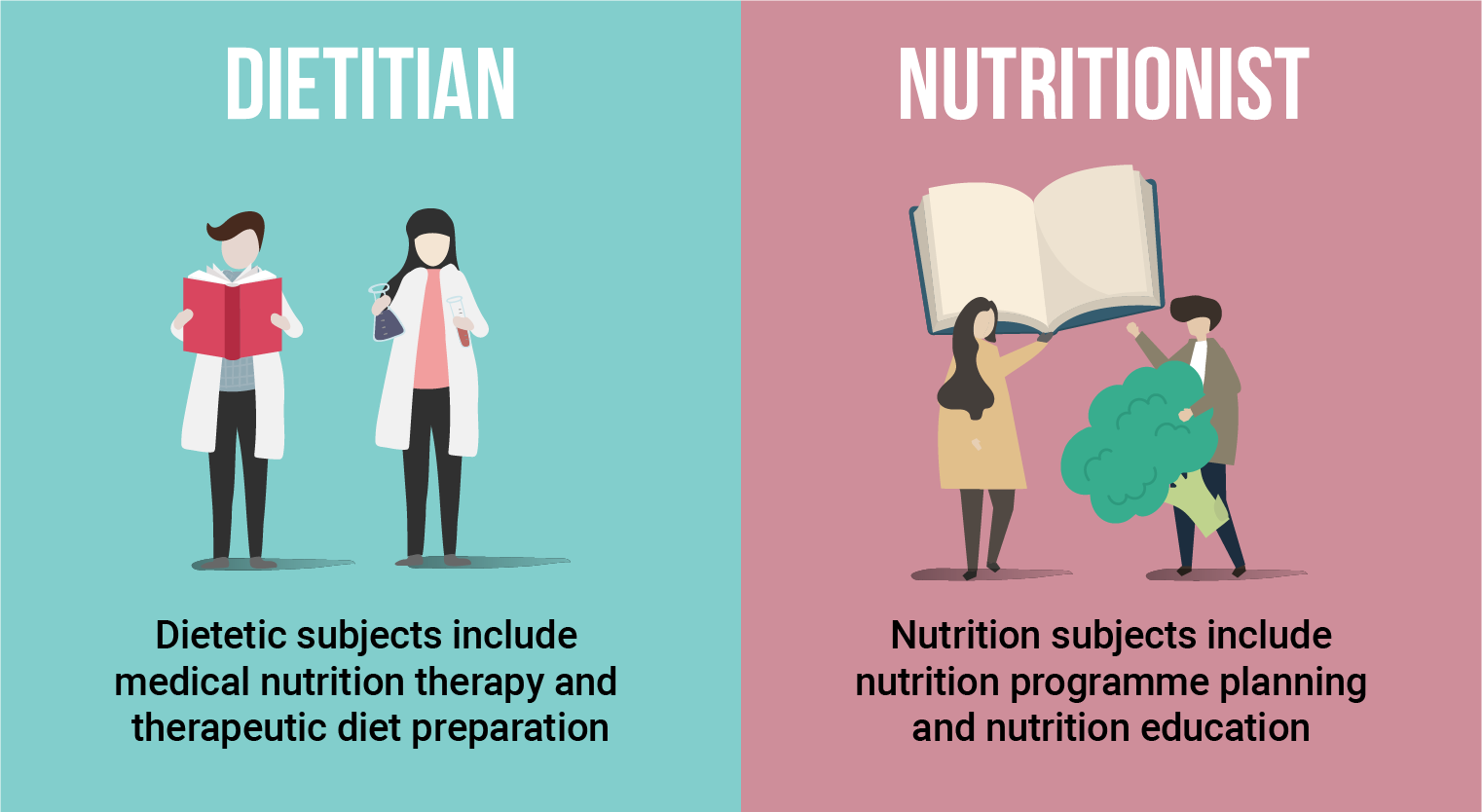4 Major Differences Between a Dietitian and a Nutritionist
Nutritionists and dietitians play completely different, but extremely important roles in preserving good health. Here are 4 major differences between these two professions.
Updated 27 Oct 2018

If you’ve thought about transforming your love for food, health and vitality into a full-blown career, you’ve probably heard the terms nutritionist and dietitian floating around. You may have even heard them used interchangeably.
But are they one in the same or completely different career paths? Find out as we unveil the 4 major differences between a nutritionist and dietitian.
#1. Dietitians work with healthy and sick people while nutritionists are limited to healthy individuals only

Dietitians are trained professionals who promote nutritional well-being and treat medical conditions through medical nutrition therapy. They often work with people diagnosed with chronic diseases and suggest dietary changes. For example, a dietitian may design a comprehensive meal plan for someone with diabetes, high cholesterol or obesity to manage their condition better.
Nutritionists, on the other hand, are focused on promoting healthy eating habits and a balanced lifestyle. They do not treat individuals suffering from illnesses (e.g. diabetics, people with high blood pressure). Instead, they work exclusively with healthy individuals who are seeking to improve their nutrition intake and lifestyle by making better choices about the food they eat.
#2. The term “dietitian” is regulated while “nutritionist” is not

In many parts of the world, dietitians are heavily regulated, where you need to meet specific professional requirements and register with the relevant body in order to call yourself a dietitian. You may even need to pass an exam and hold a licence before practising as a dietitian. This is because the field of dietetics is medical and diagnostic (identifying illnesses and diseases) in nature.
On the other hand, nutritionists are often not regulated by law and anyone can call themselves a nutritionist. This can make it hard to distinguish between those who have proper qualifications and those who are self-taught or without genuine qualifications. As such, certain countries have introduced the term “registered nutritionist”, where those with a recognised degree in nutrition science can register with nutrition associations.
DID YOU KNOW
In Malaysia, both terms are currently not regulated yet. However, as part of the Allied Health Professions Act 2016, there are plans to ensure that all allied health professionals are registered, including both dietitians and nutritionists.
Apply for university with EduAdvisor
Secure scholarships and more when you apply to any of our 100+ partner universities.
Start now#3. Both study similar subjects at the start but deviate towards the later part of the degree

In Malaysia, nutrition and dietetics courses share a similar curricular framework at the beginning. In both programmes, you will start with the basics of biology and food, taking modules such as anatomy and physiology, genetics, microbiology, food science and food preparation.
In the later years, nutrition students will delve deeper into nutrition modules, learning nutrition programme planning and assessment, nutrition education and promotion as well as nutrition for sports and physical activity.
In contrast, dietetics students take on more medical-related subjects, such as clinical biochemistry, medical nutrition therapy and therapeutic diet preparation. In addition, dietetics students are required to take on 3 types of industrial placements — one clinical placement, one community dietetics placement and one related to food service.

#4. Dietitians and nutritionists work in different workplaces

Although both dietitians and nutritionists share a similar role in promoting health through good nutrition, they both work in vastly different settings.
Dietitians usually work in medical settings, such as hospitals and health clinics where they conduct nutritional assessments on patients and prescribe dietary changes to better manage and treat their diseases. Sometimes, their roles may expand to pharmacies, insurance companies and other areas in the healthcare industry.
In contrast, nutritionists are often found in commercial settings, such as fitness and wellness centres as well as nutritional supplement companies where they provide dietary consultations and formulate meal plans for clients. Other workplaces include health food restaurants and large corporations with in-house cafeterias where nutritionists develop healthy food menus. In addition, you may also find them working in governmental agencies to educate the general public on the importance of a well-balanced lifestyle.
So there you have it — 4 vital differences between a nutritionist and dietitian! Although these two professions can work in similar industries, they are equipped with the skills to perform different functions. We hope this breakdown of the differences between the two gives you a clearer picture of which career might be the perfect match for you.






